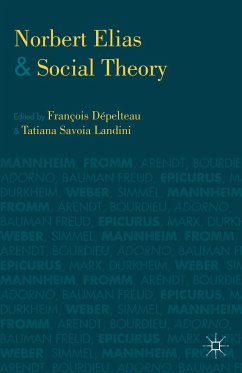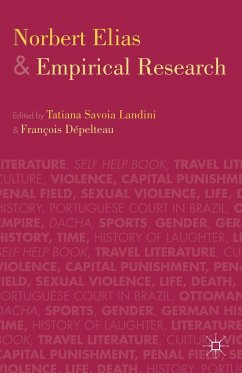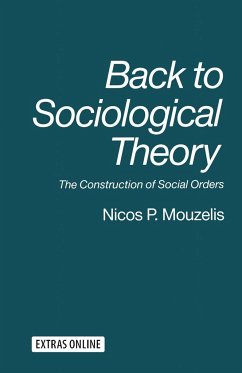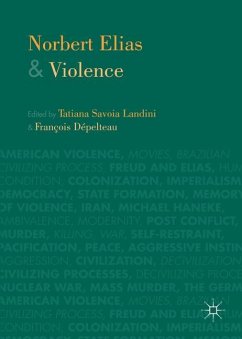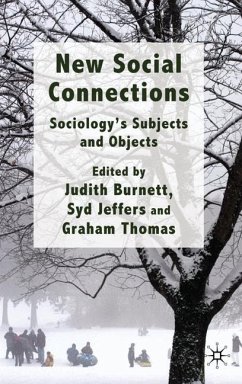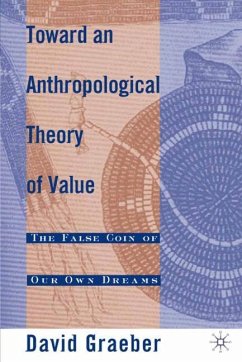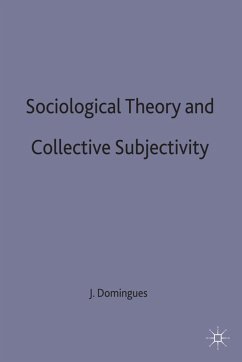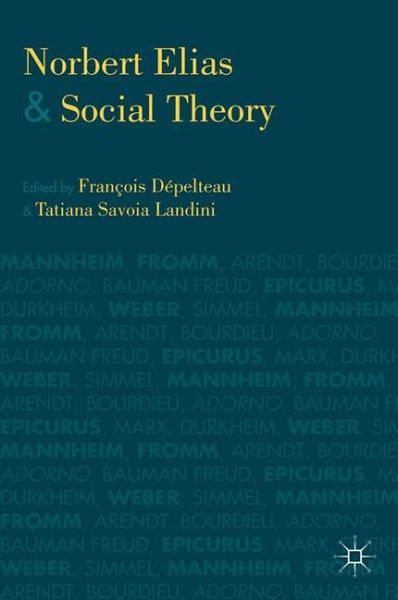
Broschiertes Buch
Norbert Elias and Social Theory
Versandkostenfrei!
Versandfertig in 6-10 Tagen

PAYBACK Punkte
19 °P sammeln!





This book will compare the approach and works of Norbert Elias, well known for his analysis of the civilizing process, his work on sport and violence and, more largely, his figurational approach, with other important social theories both classical and contemporary.
Eric Dunning, University of Leicester, UK. Nathalie Heinich, Center of Research on the Arts and Language Barbara Evers, University of Manchester, UK Bernard Lahire, Max Weber Center (CNRS) Chris Powell, University of Manitoba, Canada Enio Passiani, Facamp, Brazil Hector Vera, The New School for Social research Florence Delmotte, Facultés Universitaires St-Louis, Belgium Leopoldo Waizbort, University of São Paulo, Brazil Vera Weiler, Universidad Nacional de Colombia Richard Kilminster, University of Leeds, UK Tim Berard, Kent State University, USA Paul Walsh, University of Toronto, Canada Ryan Powell, Sheffield Hallam University, UK John Flint, Sheffield Hallam University, UK
Produktdetails
- Verlag: Palgrave Macmillan / Palgrave Macmillan US / Springer Palgrave Macmillan
- Artikelnr. des Verlages: 978-1-349-45716-8
- 1st ed. 2013
- Seitenzahl: 332
- Erscheinungstermin: 21. November 2013
- Englisch
- Abmessung: 229mm x 152mm x 19mm
- Gewicht: 482g
- ISBN-13: 9781349457168
- ISBN-10: 1349457167
- Artikelnr.: 45080405
Herstellerkennzeichnung
Palgrave Macmillan
Tiergartenstr. 17
69121 Heidelberg
ProductSafety@springernature.com
"Norbert Elias and Social Theory is a very welcome addition to the Elias collection, not least because the main aim of this volume is to demystify the work of Elias and to enable readers to better understand and assess his contribution to the discipline. As such, this book looks set to make a positive contribution to Elias's legacy and to make his work more accessible to a broader range of researchers and academics." - British Journal of Sociology of Education
'Norbert Elias was one of the most important and wide-ranging sociological theorists of the twentieth century. But he was much more than a mere 'theorist' his work was always grounded in empirical research. That is why, in the twenty-first century, there is a thriving global
'Norbert Elias was one of the most important and wide-ranging sociological theorists of the twentieth century. But he was much more than a mere 'theorist' his work was always grounded in empirical research. That is why, in the twenty-first century, there is a thriving global
Mehr anzeigen
research tradition using his ideas to understand the world today and where it is going. This edited volume brings together contributions from younger researchers working in Elias's footsteps on four continents, and in doing so paves the wayfor the continuation of a vibrant and essential tradition.' - Stephen Mennell, General Editor, the Collected Works of Norbert Elias
'This superbly organized collection of essays provides a long overdue systematic comparison between the work of Norbert Elias and that of other major social thinkers of the classical and contemporary eras. The wide-ranging discussions presented herein will no doubt prove indispensable for scholars and students of sociological theory. In Norbert Elias and SocialTheory, Elias's work is subjected to a series of rigorous critical and comparative analyses which, when taken together, clearly consolidate his status as one of the most important social scientists of the twentieth century, and one whose work retains an enduring relevance and significance to this day. A must-read.' Jason Hughes, Professor, Department of Sociology, University of Leicester, UK
'This superbly organized collection of essays provides a long overdue systematic comparison between the work of Norbert Elias and that of other major social thinkers of the classical and contemporary eras. The wide-ranging discussions presented herein will no doubt prove indispensable for scholars and students of sociological theory. In Norbert Elias and SocialTheory, Elias's work is subjected to a series of rigorous critical and comparative analyses which, when taken together, clearly consolidate his status as one of the most important social scientists of the twentieth century, and one whose work retains an enduring relevance and significance to this day. A must-read.' Jason Hughes, Professor, Department of Sociology, University of Leicester, UK
Schließen
Für dieses Produkt wurde noch keine Bewertung abgegeben. Wir würden uns sehr freuen, wenn du die erste Bewertung schreibst!
Eine Bewertung schreiben
Eine Bewertung schreiben
Andere Kunden interessierten sich für




